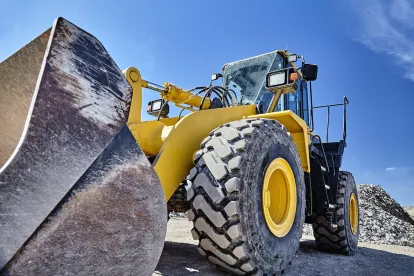Introduction
The impact of COVID-19 on the construction industry has been the subject of much debate this week, as discussed in our blog article “COVID-19 Construction Industry - Operating in a Pandemic”, with businesses split over whether or not to shut down operations in order to protect the health and safety of those working on construction sites. The division has been exacerbated by the lack of a clear Government directive either way, meaning that it has - for the time being at least - been left in the hands of individual companies to decide whether or not to stop work.
While that issue continues to divide opinion, what is clear is that the pandemic and the fall-out from it will place an unprecedented strain on supply chains, and one of the main challenges currently faced by the industry is how to maintain cash flow so that businesses are able to survive and continue working once we emerge through the other side. In this regard the Government has taken steps to provide further clarity and guidance, with the publication on 20 March of Procurement Policy Note - Supplier relief due to COVID-19 PPN 02/20 (“PPN02/20”).
Taking immediate effect until 30 June 2020, PPN02/20 applies to all contracting authorities (including central government departments, executive agencies, non-departmental public bodies, local authorities and NHS bodies) and covers goods, services and works contracts being delivered in the UK.
What is the aim of PPN02/20?
As a result of COVID-19, many suppliers to public sector contracting authorities will struggle to meet their contractual obligations, meaning that their financial viability, ability to retain staff and their supply chain will all be in serious jeopardy.
PPN02/20 follows on from the more general supply chain advice to public bodies contained in PPN01/20 published in early March, and emphasises that acting quickly to maintain supply chain cash flow is key and that:
“Contracting authorities should act now to support suppliers at risk so they are better able to cope with the current crises and to resume normal service delivery and fulfil their contractual obligations when the outbreak is over.”
PPN02/20 also emphasises that it is “vital that contracting authorities pay all suppliers as quickly as possible to maintain cash flow and protect jobs.”
Key action points
PPN02/20 sets out a number of immediate action points for authorities to follow in order to achieve the above aims, including:
1) Undertaking an urgent review of their contract portfolio and informing any ‘at-risk’ suppliers that they will continue to be paid as normal - even if works are disrupted or suspended - until at least the end of June.
• This should broadly override any existing contractual provisions such as force majeure or business continuity clauses which might allow for/restrict payment on other terms.
• It is however for Authorities to define which suppliers are ‘at risk’.
2) Establishing the “most appropriate” payment measures to assist cash flow for suppliers.
• This requirement is likely to mean consideration of a range of approaches which differ from, or supplement, the usual sort of payment provisions, such as payment against revised/extended milestones or timescales, forward ordering, payment in advance/prepayment, interim payments and payment on order rather than receipt of goods.
• Support is provided to this via the publication of “Guidance notes on Model Interim Payment Terms - Procurement Policy Note 02/20.”
3) For contracts involving “payment by results”, paying suppliers on the basis of previous invoices - PPN02/20 suggests taking the average monthly payment over the previous three months as an example.
4) Ensuring immediate payment of supplier invoices. The usual approach of reconciling invoices and checking supporting documentation should be paused. Suppliers should distinguish in their invoices between ‘normal’ services and those which are attributable to the impact of COVID-19.
For their part, and in order to qualify for the concessions contained in the PPN, suppliers are required to act on an open book basis, make cost data available to the contracting authority during this period and continue to pay employees and flow down funding to their subcontractors.
What does this mean in practice?
The overriding objective is for suppliers to be paid as quickly as possible to safeguard both cash flow and jobs. As set out above, achieving this objective may require changes to the way in which contracts with suppliers are operated for the duration of the pandemic.
Contracting authorities and suppliers will need to work collaboratively to make this happen. They should aim to work with suppliers and, if appropriate, provide relief against their current contractual terms (for example relief on KPIs and service credits) to maintain business and service continuity rather than accept claims for other forms of contractual relief, such as force majeure.
In doing so however it will also be important to carefully consider and document, prior to implementation:
• risks associated with advance payment or prepayment, and the knock-on effects throughout the contract to any alteration in payment terms or other obligations or entitlements;
• the implications in respect of legislative compliance: for example, PPN02/20 requires any changes to comply with the Public Contracts Regulations 2015 (or equivalent), guidance on which was also given in PPN01/20 ; and
• the mechanisms which may be used to ensure that such changes only apply for as long as is necessary to deal with the crisis in hand. The provisions of PPN02/20 only currently apply until June, and it may be sensible for agreements reached, and contractual amendments made, to be linked in some way to that timeframe as a point for further review.
Conclusion
Despite the initiatives proposed by the PPN, suppliers may still become insolvent, a suspension may still lead to a termination event, and there will still be disagreements between authorities and suppliers as to whether work should continue on site at all. There may therefore be very strong arguments in favour of taking a strong contractual stance from the outset.
Having said that, however, now may instead be the time to really look to what those collaborative, team-based clauses in your contract require of you: talk to each other, plan ahead and seek to avoid bunkering down into entrenched contractual positons, and don’t let COVID-19 become the new ‘Christmas ambush’ in adjudications!






 />i
/>i

